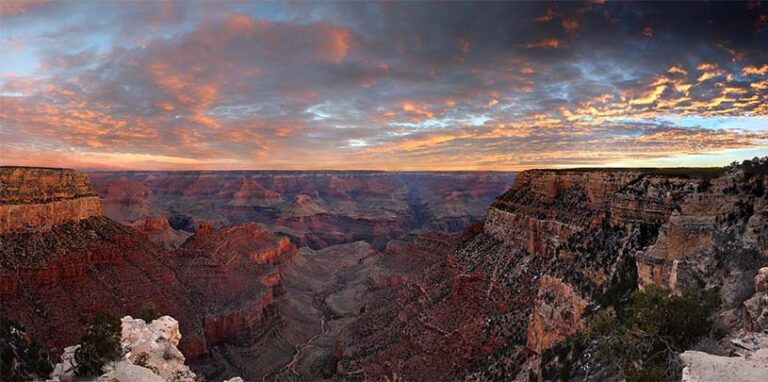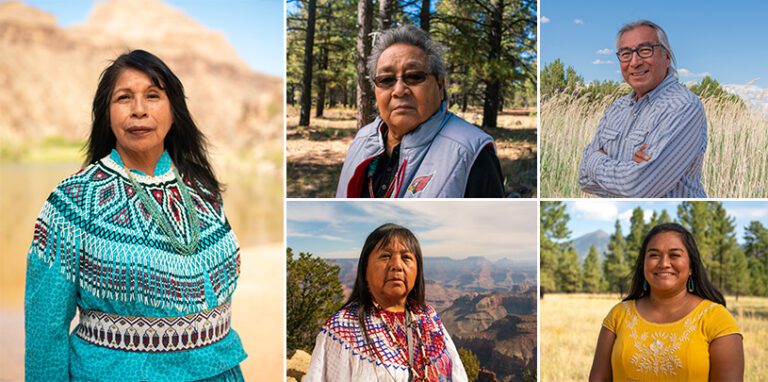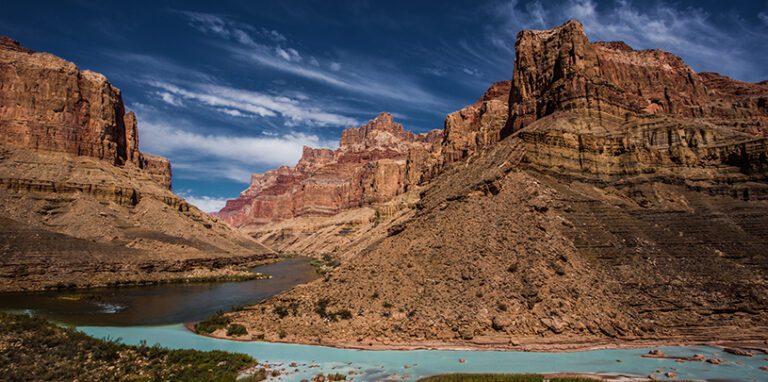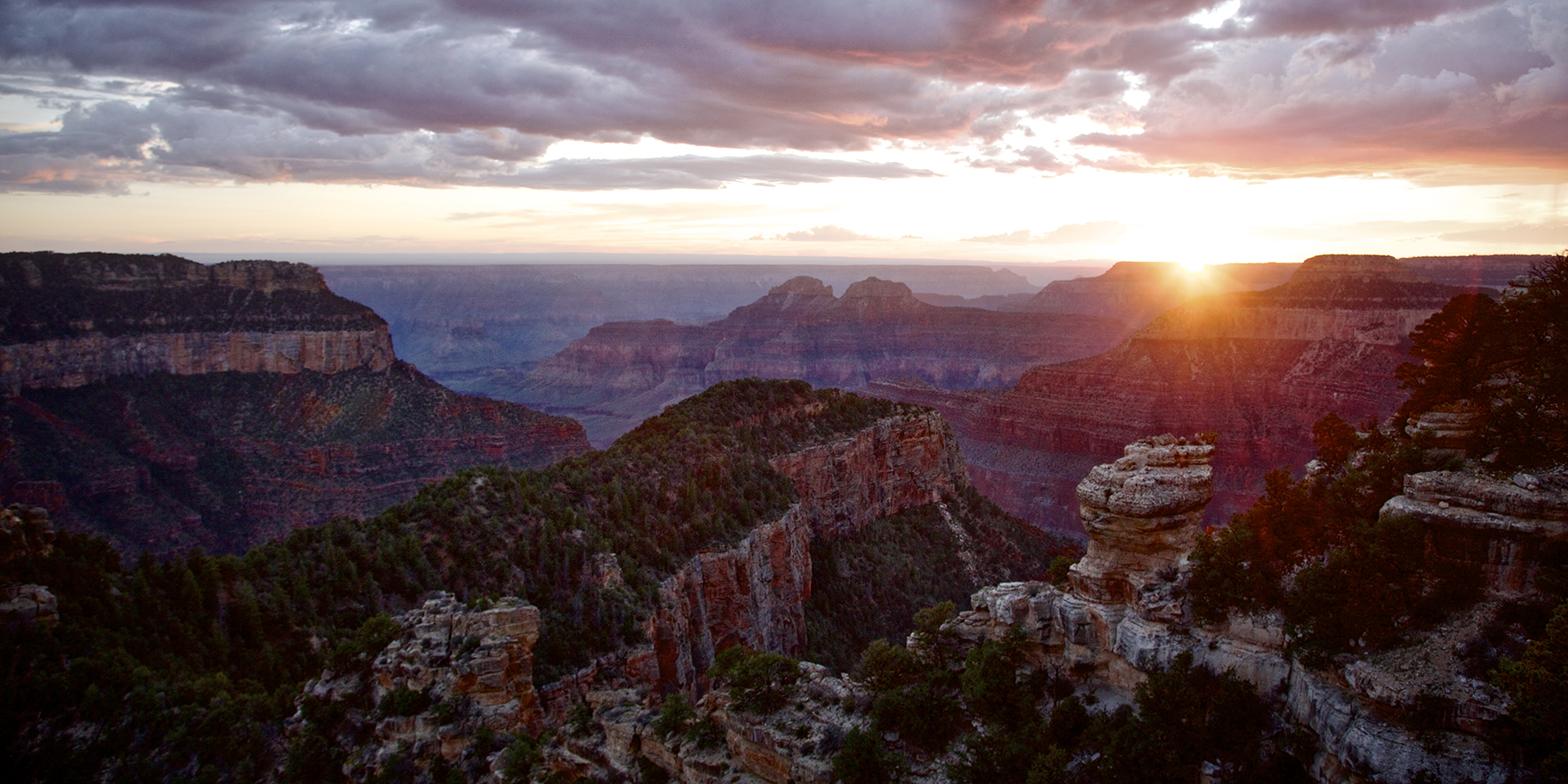
Native Voices of the Grand Canyon
Native voices lead into the second century of Grand Canyon National Park
Experience the Grand Canyon alongside Jim Enote (Zuni), Nikki Cooley (Diné), Leigh Kuwanwisiwma (Hopi), Coleen Kaska (Havasupai), and Loretta Jackson-Kelly (Hualapai)
Hear voices of the Grand Canyon speak
Long before the Grand Canyon joined ranks as a national park, it was home to Indigenous peoples. At least 11 tribes trace their ancestors, cultures, and places of origin to the Grand Canyon. But Native peoples — the canyon’s original caretakers — have been pushed off their homelands and excluded from park management for the last 100 years.
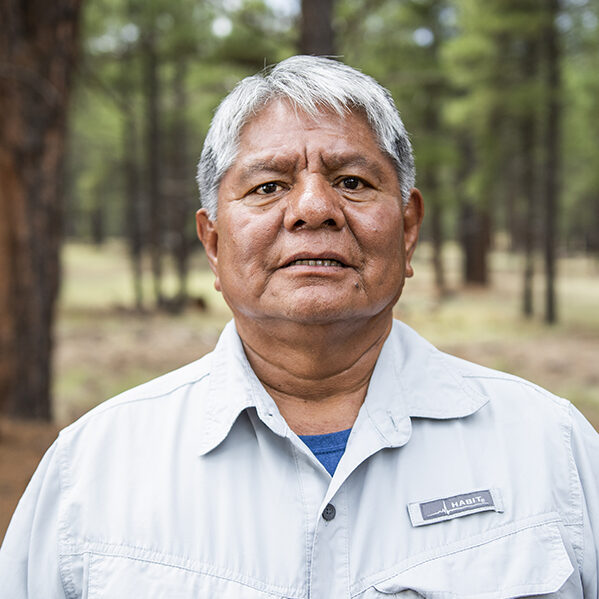
“Since the creation of the national park at Grand Canyon, their whole approach was not very accommodating to the tribes.
Theodore Roosevelt went there, designated it, and had all the tribes moved out of that area, claiming it a natural treasure for the American people. We are the American people too, and that’s our homeland…”
Richard Powskey
Hualapai
Grand Canyon National Park Centennial
An opportunity to reflect on a century of exclusion
The centennial anniversary of Grand Canyon National Park in 2019 brought dozens of individuals from Hualapai, Havasupai, Zuni, Hopi, Southern San Juan Paiute, Navajo, and other Grand Canyon tribes together to reflect on the past and chart a new vision for collaboration between tribes and Grand Canyon National Park.
Now, they’re ushering in a new era of stewardship for the Grand Canyon region for the next century and beyond.
Intertribal Centennial Conversations
Leading up to the park centennial, dozens of cultural leaders formed the Intertribal Centennial Conversations Group to heal, share their true histories, and strengthen relationships with the National Park Service and other partners to protect the Grand Canyon’s heritage. Today, momentum continues as the group works to place Native voices at the forefront of education, stewardship, and economic opportunities in Grand Canyon National Park.
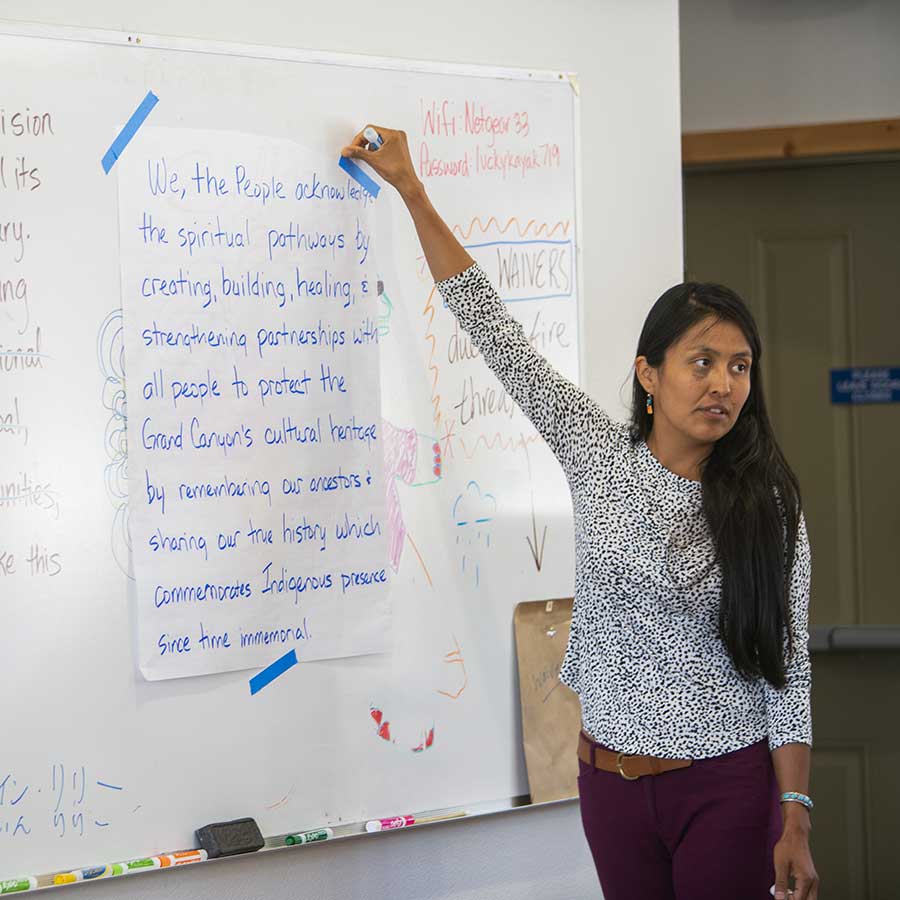
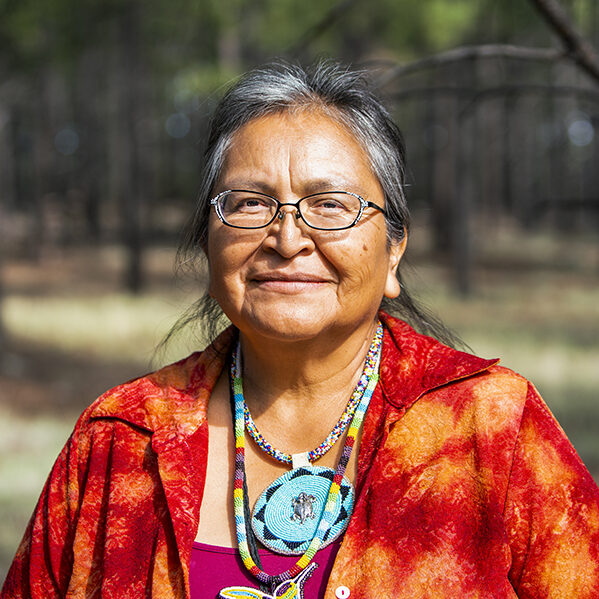
“I’d like to see my progeny — all my great-grandchildren, and their grandchildren — be able to go to the canyon and realize and know that those places are protected and preserved for them.
I don’t want them to come to face what we had to. The humiliation, the attempts to make us so ashamed of where we come from.”
Renae Yellowhorse
Diné (Navajo)
Three areas of focus
Redefining the next century
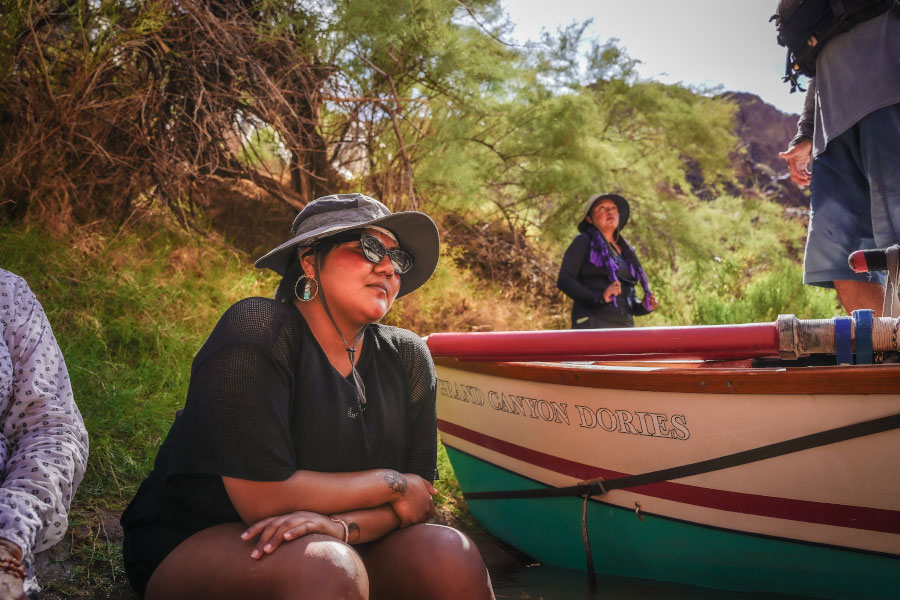
Education
Much of the Intertribal Centennial Conversations Group’s work centers on the education of park staff, Grand Canyon river guides, hiking guides, educators, and tourists.
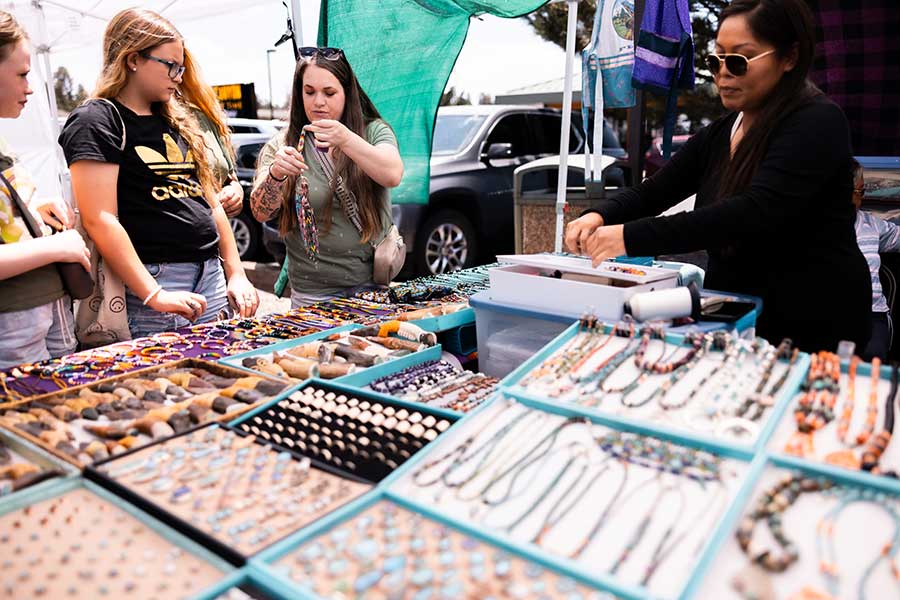
Economic equity
Through intertribal economic summits and emerging networks, the group is working to build an inclusive, equitable Grand Canyon economy.
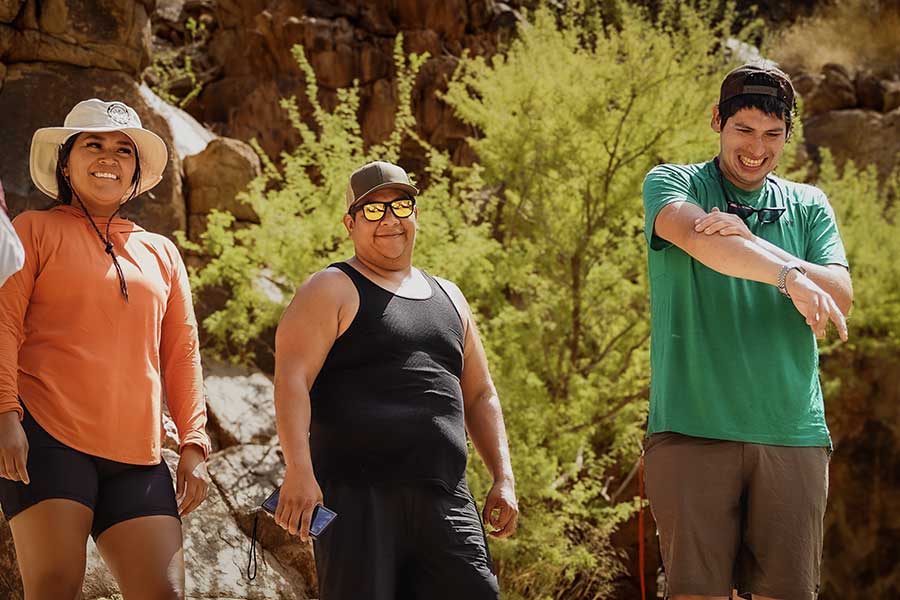
Stewardship
Long term, the group is working to incorporate cultural practices and knowledge into the management of park lands and beyond.
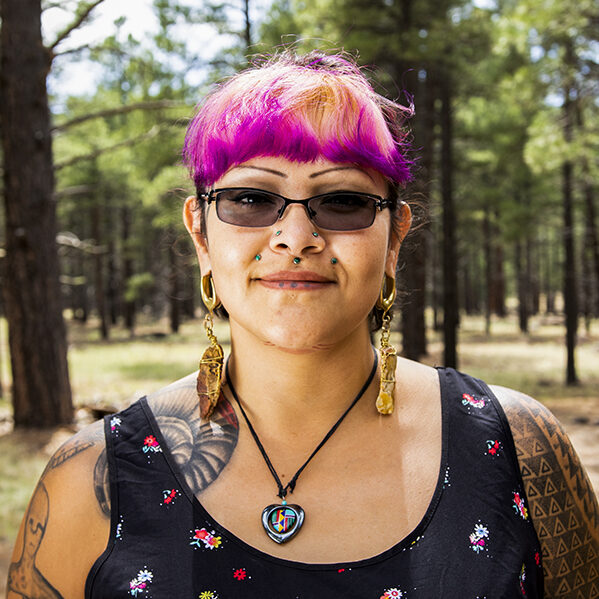
“I want people to know that the cultural history of the Grand Canyon is not the history you read in colonial books.
I want them to honor and respect our oral history and to understand that the history of the Grand Canyon doesn’t start with Mary Colter”
Ophelia Watahomigie-Corliss
Havasupai
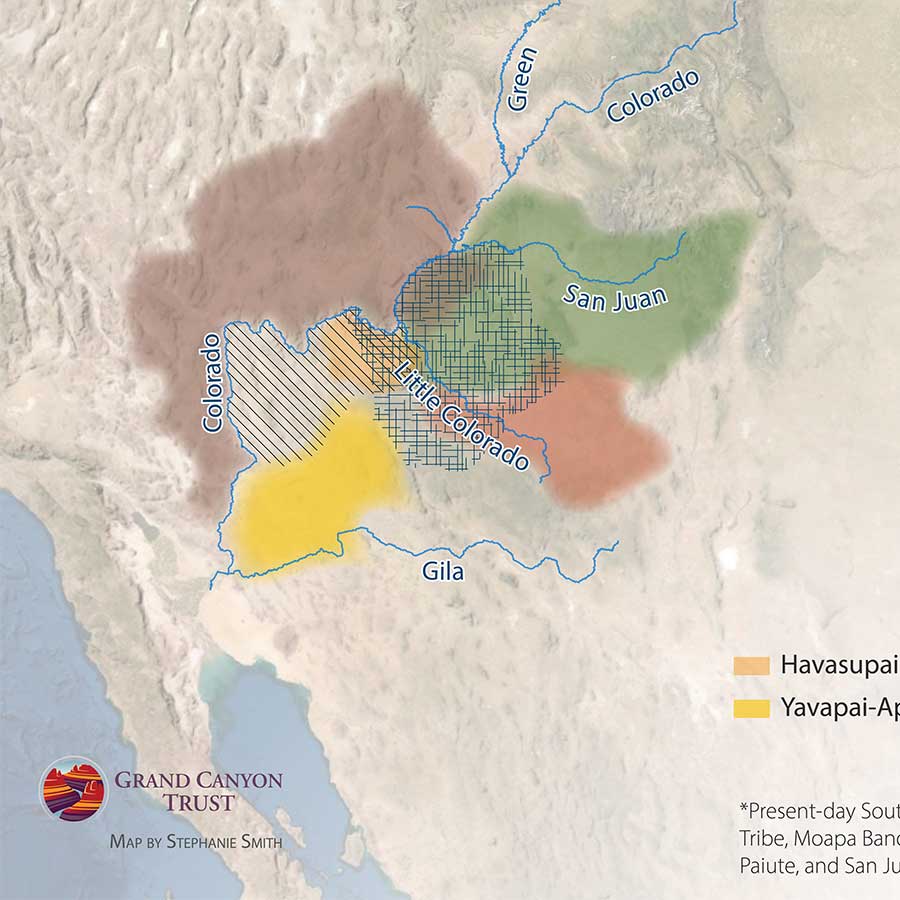
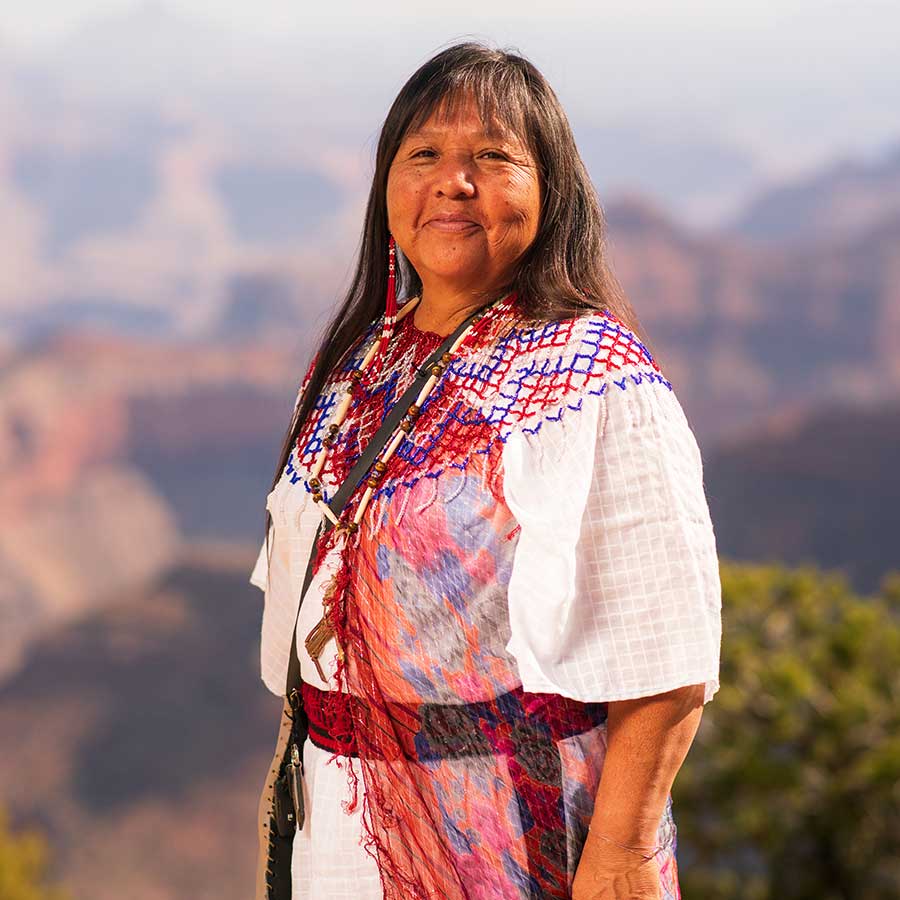
Story collection
The Voices of Grand Canyon
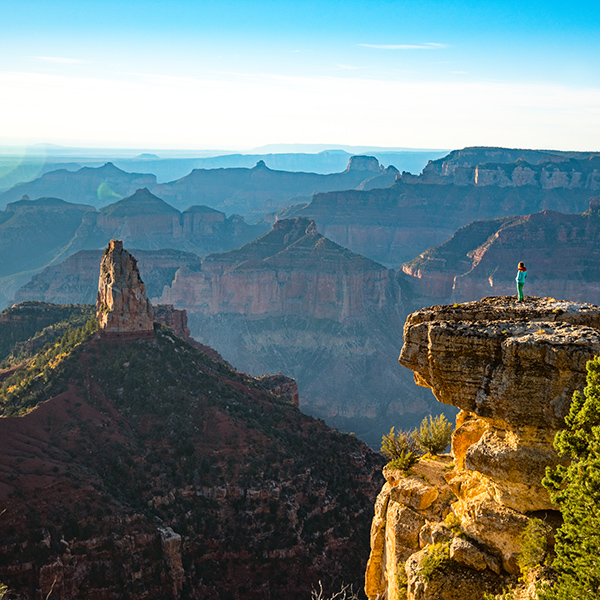
Lesson PlaN
Grand Canyon Place Names
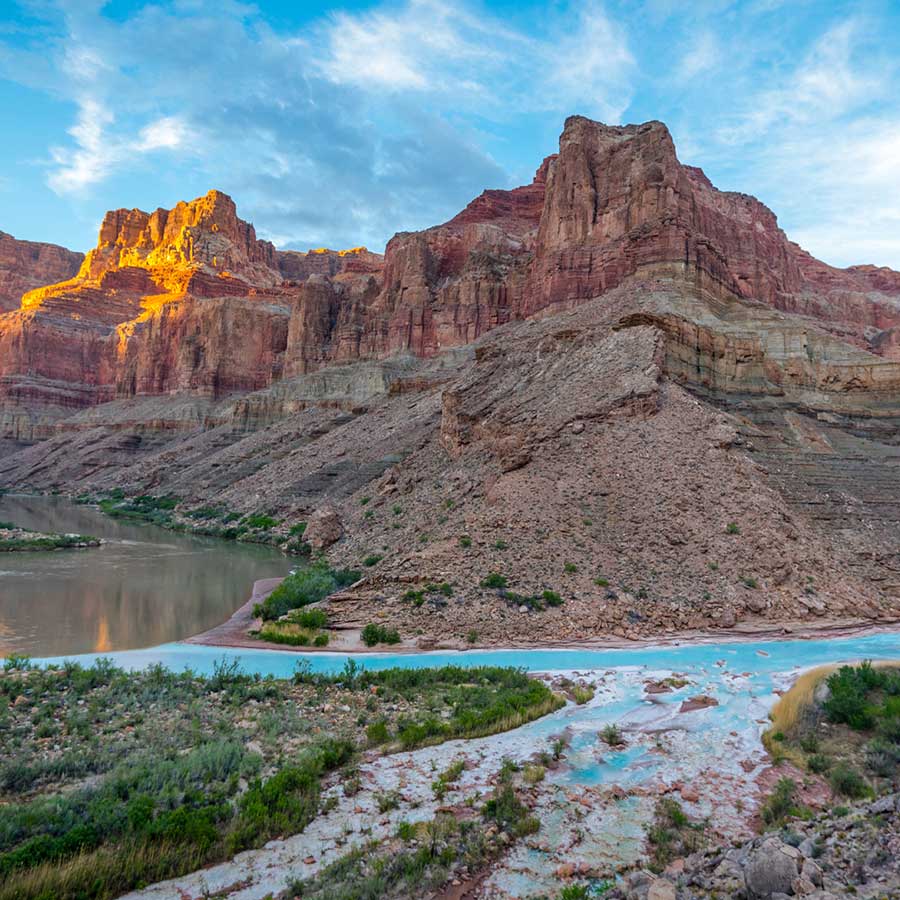
Lesson plan
Threats to the Grand Canyon
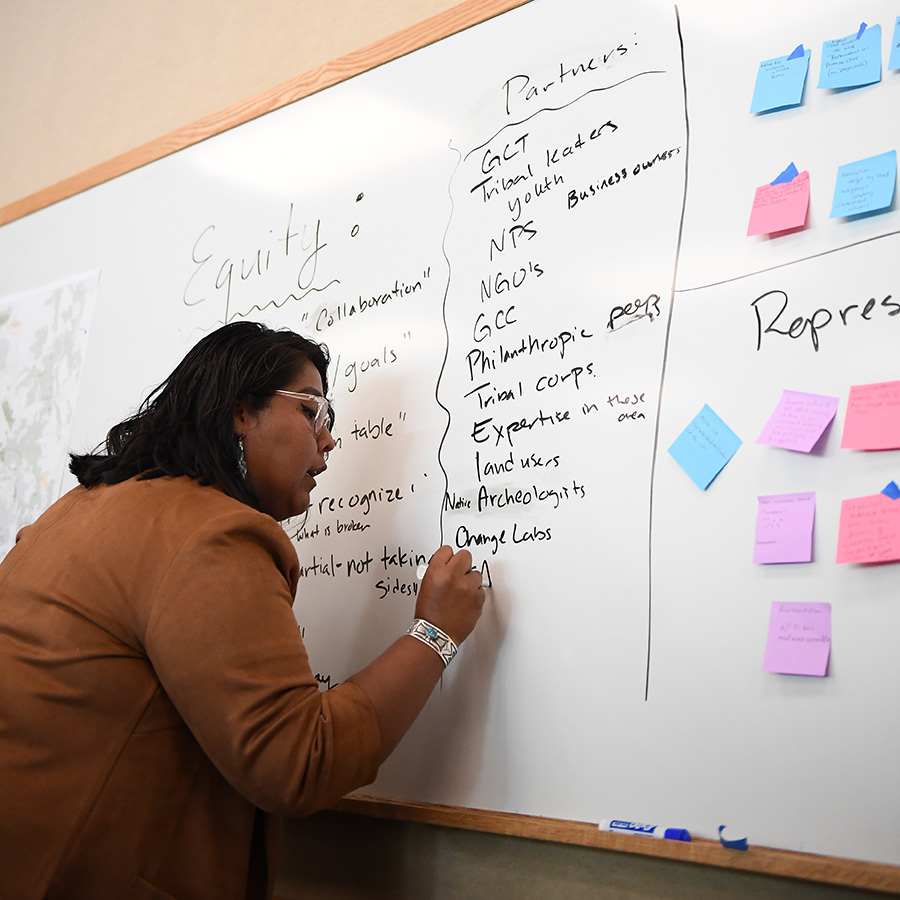
Native voices in the Grand Canyon
Read stories on the blog